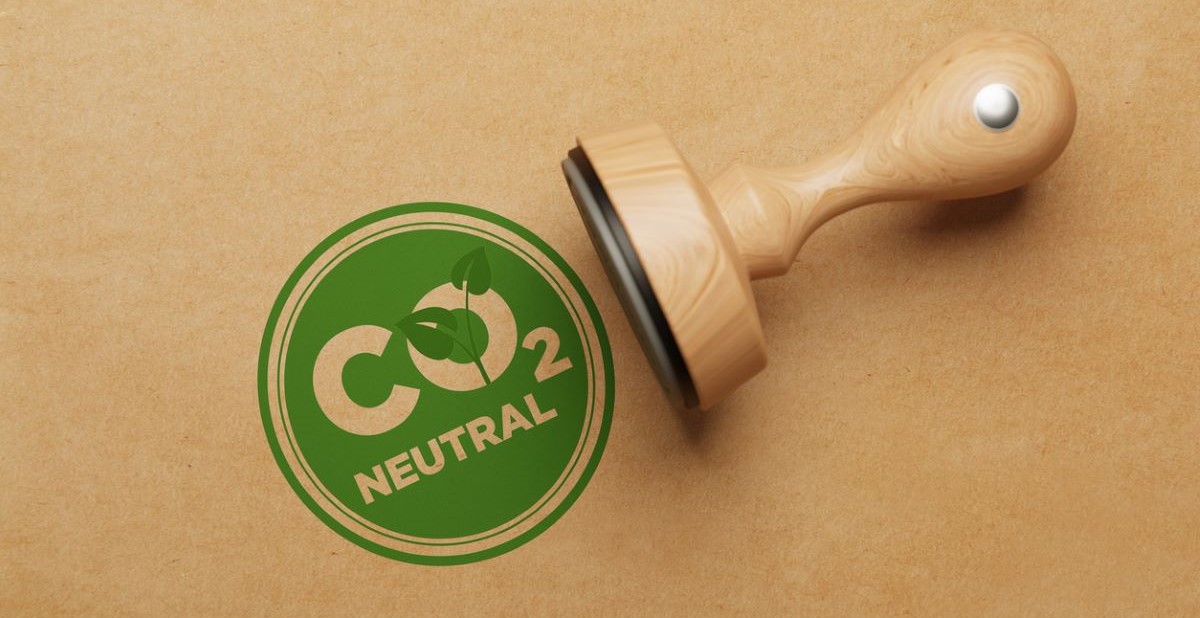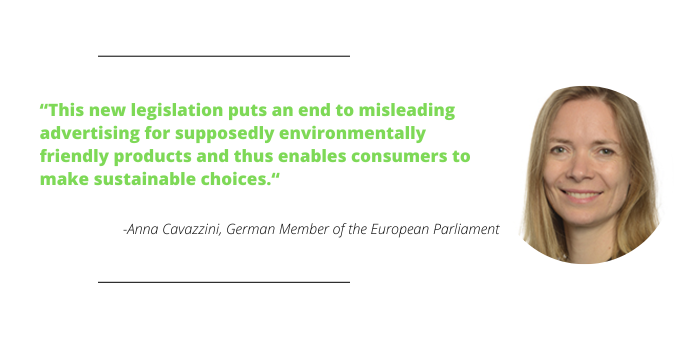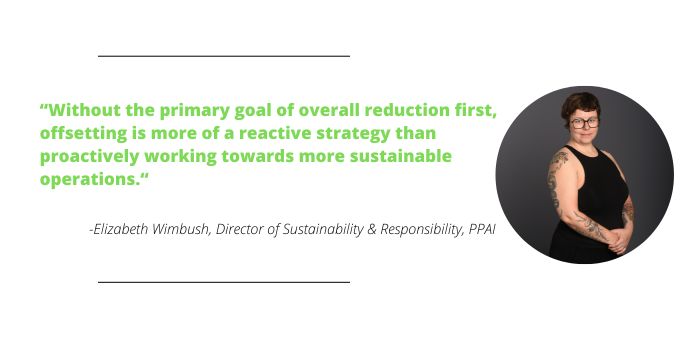EU Lawmakers Say Carbon Offsetting Can’t Be Labeled ‘Climate Neutral’

The European Union has put a ban on misleading advertising that claims a company’s products are environmentally friendly without basis in fact after a recent vote by members of the European parliament.
- Notably, “carbon offsetting schemes” will not be considered sufficient evidence for claims of “climate neutral” or “climate positive” products or events.
“This new legislation puts an end to misleading advertising for supposedly environmentally friendly products and thus enables consumers to make sustainable choices,” says Anna Cavazzini, German member of the European parliament and chair of the Committee of the Internal Market and Consumer Protection.
- The rule goes into effect in 2026, giving EU member states two years to introduce it and businesses to prepare.
PPAI’s director of sustainability and responsibility, Elizabeth Wimbush, says this lays out legal groundwork in Europe and comes closer to setting a global standard for what is considered accurate marketing in regards to sustainability claims.
“This new ruling will help clarify what is and isn't acceptable for environmentally friendly marketing claims – ultimately this will help remove some of the uncertainty and help lay out a clearer path forward,” Wimbush says.

Is Carbon Offsetting A Scheme?
Many corporations, industries and individuals are familiar with the term “carbon offsetting.”
- Essentially, it is the process of attempting to compensate for causing carbon dioxide emissions by creating or contributing to programs that reduce a similar amount of carbon dioxide.
- Planting trees, for example, is a common way that corporations claim to reduce their carbon footprint.
The EU’s new ban infers that these measures do not legitimately offset the environmental impact consumers are told they do. Rather, they are a way to spend money “greenwashing” away a potentially negative perception that a company could incur from releasing CO2 into the atmosphere.
- The literal acts often labeled as “carbon offsetting” are not banned.
- Those acts, though, cannot be used to suggest that certain actions are not affecting the climate crisis, when factual evidence shows that they are.
“Investments by companies in climate protection projects are welcome and of course they can still be communicated,” Cavazinni says. “However, it should no longer appear that planting trees in the rainforest makes the industrial production of a car, the organization of a soccer World Cup or the production of cosmetics climate neutral. This deception is now a thing of the past.”
In 2023, an investigation by The Guardian revealed that more than 90% of rainforest carbon offsets by Verra, the world’s leading carbon standard for voluntary offsets market, were essentially worthless in terms of environmental impact.
“This agreement is a big step towards more honest commercial practices and more informed European consumers,” says Lindsey Otis, a policy expert on global carbon markets. The European Union is taking leadership in combating greenwashing,” says Lindsay Otis, a policy expert on global carbon markets at Carbon Market Watch. “Carbon neutrality claims have been shown to be unintelligible to consumers, and they must stop.”
- Wimbush points out that there are widely accepted norms (such as the Science-Based Target Initiative) that lay out how carbon offsetting should be used as a complementary strategy to reduction goals, accounting for no more than 10% of total emission reductions.
“Without the primary goal of overall reduction first, offsetting is more of a reactive strategy than proactively working towards more sustainable operations,” Wimbush says.

Will This Affect The U.S.?
This development could be of significant to the promo community, an industry that is focused on correcting its reputation as unsustainable or environmentally irresponsible. As promotional products companies make moves to avoid “brandfill” accusations, it is important to focus primarily on programs and measures that legitimately reduce the carbon emissions being released due to the manufacturing and distribution of products.
- Programs that reduce carbon emissions, such as One Tree Planted, are positive contributions in the fight against climate change. However, fewer and fewer consumers will see this as a form of canceling out environmental damage done by any business.
The EU ruling may represent a shift in thinking, even in countries, like the U.S. where such laws are not currently in place. Wimbush suggests that American companies may see that shift to a greater degree in the coming years.
“I believe we'll start to see the impact of this ban before it's legislated here,” Wimbush says. “It makes sense for large multi-national companies to set this as their standard across the board to stay in compliance. There will be a trickle-down effect, where those in our industry selling promotional products to those companies will need to live to live up to those standards as well.”

